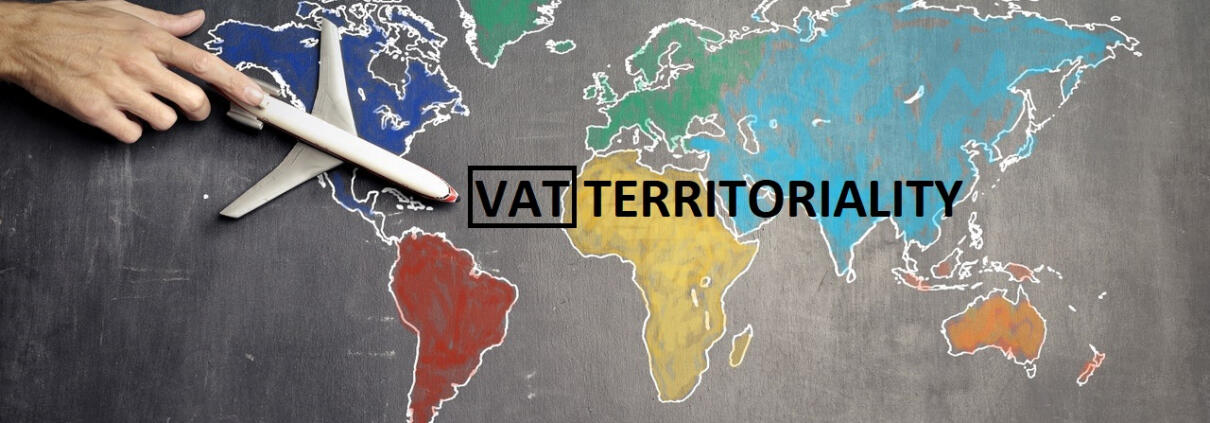VAT Territoriality : what you should know
What are the VAT territoriality guidelines?
The territoriality of VAT refers to the rules that apply to determine whether a transaction is taxable for VAT within the jurisdiction or country where the transaction is performed.
In Morocco, VAT territoriality rules are explained in the Article 88 of the General Tax Code. As such, the value added tax is applicable in Morocco when the transaction is made in Morocco.
Basic principle
According to Article 88 of the CGI, a transaction is deemed to be made in Morocco:
Firstly, in case of a sale
When the sale is made under the conditions of delivery of the goods in Morocco ;
Secondly, for other transactions
When the provided service, the transferred right or the rented object is exploited or used in Morocco.
VAT Territoriality – Sales in Morocco
According to Circular 717, Volume 2:
A sale in Morocco corresponds to a sale under the conditions of delivery of the goods in Morocco. Thus, under the VAT territoriality rules, this sale must be taxed in Morocco.
What is a delivery to Morocco as defined by tax law?
A delivery represents the transfer of the thing sold to the use and possession of the buyer. Thus, it is the actual handing over of the goods to the buyer.
As a result, payment conditions have no influence on the place of delivery.
According to the same circular, the following should not be taken into account:
- Firstly, the place where the sale is concluded ;
- Secondly, the place of payment ;
- Thirdly, the place where the object is located at the time of sale if it is to be delivered to Morocco ;
- Fourthly, the nature of the payment currency ;
- Finally, the nationality of the sellers and buyers.
Ultimately, a sale in Morocco takes place as soon as the final reception of the goods happens on Moroccan territory.
What are the legal and fiscal effects of this definition of the VAT territoriality?
According to this rule, sales between two traders in Morocco are subject to VAT.
In addition, import purchases are subject to VAT as long as the destination of the final delivery is in Morocco
In contrast, since exports are delivered abroad, they are not subject to VAT.
However, in some cases it may turn out that:
- First, a Moroccan client takes possession of goods imported from abroad;
- Second, a seller who sends goods that an export seller gives possession of on Moroccan territory.
In both cases, the strict application of the rule may result in exports being subject to VAT or imports being exempted.
However, in order to determine whether a transaction is subject to VAT or not, the territoriality rule must be combined with the provisions governing import and export transactions.
Therefore:
- On the one hand, imports are subject to VAT, except under certain special customs regimes;
- On the other hand, the law clearly provides (in Article 92) for the exemption of goods and services on export
VAT territoriality – Other transactions
For other transactions (notably the provision of services), the basic principle takes under consideration the place where the service is used and operated.
As such, the supplier’s place of residence , for example, does not determine the VAT territoriality. The same applies to the place where the supplier provides the service (e.g. the seller’s registered office).
However, it is up to the service provider to prove that the use or operation of the service takes place outside the Moroccan territory.
Thus, for example, if a Moroccan company provides engineering services for a client outside Morocco, we should consider the following:
- First, is the client located outside the Moroccan territory?
- Second, have the contracting parties denominated the contract in foreign currency?
- Finally, does the subject of the study correspond to an exploitation or use outside Morocco?
If the answer to all three questions is yes: It is a VAT-exempt export of services.
However, if the service does not meet one of the conditions, then the VAT is still due.
Example:
- A Moroccan engineer provides a foreign company with a study for the construction of a building that it intends to build in Morocco: Taxable
- Services performed by a call center for the benefit of a foreign customer (calls from foreign customers) are not taxable.
READ MORE
Establish your company in Morocco
Open a branch of your business in Morocco



